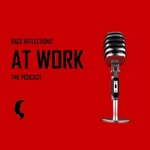Race Reflections AT WORK – Détails, épisodes et analyse
Détails du podcast
Informations techniques et générales issues du flux RSS du podcast.

Race Reflections AT WORK
Race Reflections
Fréquence : 1 épisode/16j. Total Éps: 105

Classements récents
Dernières positions dans les classements Apple Podcasts et Spotify.
Apple Podcasts
🇬🇧 Grande Bretagne - careers
03/08/2025#86🇫🇷 France - careers
04/05/2025#62🇬🇧 Grande Bretagne - careers
07/04/2025#84🇨🇦 Canada - careers
29/03/2025#91🇬🇧 Grande Bretagne - careers
09/03/2025#54🇬🇧 Grande Bretagne - careers
08/03/2025#29🇬🇧 Grande Bretagne - careers
22/02/2025#99🇨🇦 Canada - careers
19/02/2025#95🇬🇧 Grande Bretagne - careers
26/11/2024#99🇬🇧 Grande Bretagne - careers
10/10/2024#74
Spotify
Aucun classement récent disponible
Liens partagés entre épisodes et podcasts
Liens présents dans les descriptions d'épisodes et autres podcasts les utilisant également.
See all- https://www.maintenancephase.com/
101 partages
- https://www.open.ac.uk/
26 partages
- https://www.youtube.com/c/DoctorRamani
42 partages
- https://youtu.be/MoKBLPbkB5I
2 partages
Qualité et score du flux RSS
Évaluation technique de la qualité et de la structure du flux RSS.
See allScore global : 53%
Historique des publications
Répartition mensuelle des publications d'épisodes au fil des années.
COVID Pandemic, racism and ableism in the workplace
Saison 1 · Épisode 69
lundi 16 septembre 2024 • Durée 15:44
In today's episode Simone reflects on the COVID 19 pandemic and how it intersects with racism and ableism. They begin by thinking about the Olympics in relation to a lack of COVID mitigations and how we need to have conversations about COVID and racism in relation to workplace inequality. How so many things are connected; with racism, xenophobia, classism and white supremacy at the root of it all.
They then consider the way that the first year of the pandemic played out in 2020, drawing on both their lived experience and the studies and data that we now have. Thinking about who could shelter and who could not, and especially how people of colour experienced what has been described as the duel pandemic.
They then look at the article "COVID and Racism Cause Nurses of Color to Face “Dual Pandemic” by Kitta MacPherson: https://www.rutgers.edu/news/covid-and-racism-cause-nurses-color-face-dual-pandemic which sites the study "Effects of Race, Workplace Racism, and COVID Worry on the Emotional Well-Being of Hospital-Based Nurses: A Dual Pandemic” from Charlotte Thomas-Hawkins, Peijia Zha, Linda Flynn & Sakura Ando: https://www.tandfonline.com/doi/abs/10.1080/08964289.2021.1977605
They consider the pandemic happening in the context of the murder of George Floyd making it a very specific experience for Black people, and the anti-Asian racism that was exacerbated by the way the virus was being discussed making it a very specific experience for East-Asian people. And those racisms being seen in relation to communities of colour experiencing the highest rates of cases, deaths and hospitalisations, and nearly half of all health care workers with infections being among workers of colour, with nurses being the hardest hit.
Reflecting on anti-Asian racism they look at the article "Research: How Anti-Asian Racism Has Manifested at Work in the Pandemic” by Jennifer Kim and Zhida Shang: https://hbr.org/2023/03/research-how-anti-asian-racism-has-manifested-at-work-in-the-pandemic
Then they reflect on workplaces currently within the ongoing pandemic: how this impacts disabled and at risk people, how employers and governments are failing to recognise this, how there are ways we could immediately make workplaces safer that are not being implemented. They consider the way the loses we have due to this are not just from death and disability, but also from workers and students quitting their workplaces and educational establishments, and the knowledge and experience we lose when this happens.
The episode ends by considering the way COVID has both harmed disabled people disproportionately and created more disabled people, and so going forward we need to include disabled people and attempt to mitigate dangers in our workplaces, and look after and support people if they do get sick.
Subscribe, rate and review on Apple Podcasts, Spotify, Google Podcasts, Amazon Music or wherever you get your podcasts.
Should people of colour only receive therapy from people of colour?
Saison 1 · Épisode 68
lundi 2 septembre 2024 • Durée 17:37
In today's episode Guilaine continues her reflections on relationships between Black people, continuing on from her thoughts in this episode: https://www.buzzsprout.com/1623760/15451884
She addresses a question she has been answering for a long time and that keeps coming back: Should people of colour only receive therapy from therapists/analysts/psychologists/mental health professionals of colour.
She focuses on psychotherapy which is a very specific field of work, but asks a question that may be of interest or use to people of colour from all workplaces.
Three reasons why black therapists may wound their Black clients:
- It is not enough to match people on their race alone
- Just because someone has black skin doesn’t mean they have done the professional work when it comes to training around racial trauma. (And a lot of training is designed and delivered by white people so this is also a structural issue.)
- Just because someone has black skin doesn’t mean they have done the personal work around their relationship to whiteness, their heritage, their ancestry, intergenerational wounds, colonialism, etc…
Two more things to consider:
- There are other skills that therapists may have that are not specifically related to racial trauma that will help people experiencing racial trauma such as anxiety management and other core skills.
- It’s understandable why Black people might prefer Black therapists, primarily for reasons of safety and trauma
Her conclusion is that everybody would benefit from having skills for working with people experiencing racial trauma, and all training institutions and providers should offer training in racial trauma that is thorough, and supports people to work with people who are experiencing racial trauma and race based injury regardless of their racialisation. And that often racism gets in the way of working therapeutically with people of colour.
Subscribe, rate and review on Apple Podcasts, Spotify, Google Podcasts, Amazon Music or wherever you get your podcasts.
RE-RELEASE: Location of Disturbance and Scapegoating
lundi 15 avril 2024 • Durée 14:14
In this re-released episode first published on 15th March 2021, Guilaine reflects on why institutions often turn on those who allege racism. She considers some of the group processes at play using as illustration the treatment of Meghan Markle and responses from that interview. Location of disturbance and scapegoating are presented as frames to formulate victimisation and retaliation within institutions.
Subscribe, rate and review on Apple Podcasts, Spotify, Google Podcasts, Amazon Music or wherever you get your podcasts.
To send us your queries, questions and dilemmas please email atwork@racereflections.co.uk
Transcript: https://racereflections.co.uk/at-work-the-podcast/
Consent
Saison 1 · Épisode 60
lundi 1 avril 2024 • Durée 19:44
She begins with a basic definition of consent, then she details some experiences related to going out dancing that she recently experienced, and links them to the wider issues that her research explores. Part of the theme that has come up again and again in her data is patients talking about experience of whiteness in the clinic where therapists appear to be breaching boundaries, oversharing, dismissing experiences of racism, using gaslighting tactics, and engaging in the politics of denialism. She links all this to her concept of epistemic homeless and names these behaviours as acts of occupying the epistemic space of the other.
She considers how trauma is generally centered on some kind breach of boundary and how whiteness can be seen as colonial violence performed through spacial embodiment, that breaches of consent are the colonial enactment of whiteness, and that white supremacy is founded on breaching the boundaries, borders, and sovereignty of the other - bodily, territorial, psychic - and so in the everyday quotidian enactment of white violence we are going to see some repetition and reproduction of those wider politics
Some links:
Epistemic homelessness:
https://mediadiversified.org/2017/11/24/epistemic-homelessness-feeling-like-a-stranger-in-a-familiar-land/
https://www.youtube.com/watch?v=MoKBLPbkB5I
Envy: https://www.buzzsprout.com/1623760/8728416
Location of disturbance: https://www.buzzsprout.com/1623760/8127268
White Minds: https://policy.bristoluniversitypress.co.uk/white-minds
Living While Black: https://www.penguin.co.uk/books/442992/living-while-black-by-kinouani-guilaine/9781529109436
Subscribe, rate and review on Apple Podcasts, Spotify, Google Podcasts, Amazon Music or wherever you get your podcasts.
To send us your queries, questions and dilemmas please email atwork@racereflections.co.uk
Feedback!
Saison 1 · Épisode 59
lundi 18 mars 2024 • Durée 19:35
In today's episode Guilaine reflects around a listeners query asking "how do we get mangers to understand how biased they are when it comes to the feedback that they give to employees of colour."
After briefly questioning the terminology of bias and unconscious bias, she looks at the evidence from organisational psychology, considering how empirical evidence shows that marginalised employees tend to receive poorer quality feedback. Even though the research isn’t always intersectional what exists demonstrates the intersectional effect that takes place when axis of oppression and identity collide. This feedback tends to be lower quality: less precise, more global, less frequent, and there tends to be a lot of anxiety around the exercise of providing feedback
She consider aversive racism where employers withhold negative feedback to avoid accusations of racism, but in act of withholding feedback deprive the employee of the opportunity to correct and to improve, and so sometimes to not be able to pass their probation periods or acquire skills and experience that would offer the opportunity for progression within their work. Basically in this dynamic employees of colour and other marginalised groups are set to fail.
She reflects on how a high percentage of disputes that end up in employment tribunals are related to evaluation or discipline, and that the provision of effective feedback is central and essential to fair and just treatment in the workplace.
She spends some time talking about what employers racialised as white need to work on in regards to their anxiety and phobia around Blackness, considering what Fanon has said on these issues and the wider context of racist violence and exclusion, reflecting on how these conflicts are a liability for institutions when they are found lacking, and more frequently for black and brown individuals when they are not.
She then gives some thought to what can be done to correct these issues.
That whilst it’s worth making sure to avoiding it becoming self-fulfilling situation, most of the time people's instincts based on their lived experience are astute and accurate/ We need to correct the misconception that people are misinterpreting the situations, marginalised people in general interpret things on balance correctly. So instead we need to take seriously these feelings and instincts and come up with strategies to mitigate and navigate these situations. Ultimately though it is really for employers and people racialised as white to address their issues around giving feedback because it isn’t something employees of colour can change alone.
Further listening:
Aversive Racism: https://www.buzzsprout.com/1623760/8346383
Thinking about feeling, feeling about thinking: https://www.buzzsprout.com/1623760/14041582
Further reading:
White Minds: https://policy.bristoluniversitypress.co.uk/white-minds
Living While Black: https://www.penguin.co.uk/books/442992/living-while-black-by-kinouani-guilaine/9781529109436
Subscribe, rate and review on Apple Podcasts, Spotify, Google Podcasts, Amazon Music or wherever you get your podcasts.
To send us your queries, questions and dilemmas please email atwork@racereflections.co.uk
Whitelash
Saison 1 · Épisode 58
lundi 4 mars 2024 • Durée 20:50
In today's episode Guilaine reflects on the phenomenon and social dynamic of what has been called whitelash, a combination of white/whiteness and backlash.
The term was coined by African-American journalist Van Jones to describe the backlash of White America coming together to reject what had been seen as a liberalisation of the USA under Obama. And in a more general sense it describes the sense of grievance, the sense of anger, the sense of frustration that originates from people racialised as White that comes from an often misconstrued and misconceived sense of displacement and social change which is a reaction to a perception that social advancements are being made in terms of equality. This is a concept and area that is expanded on in Guilaine’s second book White Minds.
After defining and exploring the concept she then considers it within the terms of group analytic thinking, theory and practice, and looks the relationship between the socio-political and the ways that institutions, organisations and individuals relate and interact, focusing on the workplace.
She considers the whitelash that we are currently experiencing almost 4 years after the murder of George Floyd galvanised institutions to make commitments and how those words and sometimes actions are now being pushed back against very strongly. And how this whitelash is also being felt across many intersections and identities.
She then shares some observations from her experience of delivering work related DEI training and looks at the affect of whitelash on Race Reflections as both an organisation and as a business.
White Minds is available to buy here: https://policy.bristoluniversitypress.co.uk/white-minds
Van Jones on whitelash: https://www.vox.com/identities/2016/11/9/13572182/van-jones-cnn-trump-election-2016
Subscribe, rate and review on Apple Podcasts, Spotify, Google Podcasts, Amazon Music or wherever you get your podcasts.
To send us your queries, questions and dilemmas please email atwork@racereflections.co.uk
Surviving Whiteness at Work
Saison 1 · Épisode 57
lundi 19 février 2024 • Durée 17:14
In today's episode Guilaine continues to look forwards towards Race Reflections path in 2024 and beyond. She announces a future book that will be coming from Race Reflections, our first book as an organisation.
That book is Surviving Whiteness at Work: reflections on defiance, resistance and transformation
It will aim to describe the working of Whiteness in the workplace through the lived experience of our team and community members, and what ways they have found helpful to grow, to survive, to thrive despite working in an environment that might have been hostile, toxic, marginalising and discriminatory. It will look at theory and autoethnographic experience and will be solution focused.
In this episode she discusses and reflects on that book and gives a flavour of the thinking and topics it may cover.
For more on this exciting new project see here: https://racereflections.co.uk/title-surviving-whiteness-at-work-reflections-on-defiance-resistance-and-transformation/
If you are a member of the Race Reflections community we are looking for contributions: https://racereflections.co.uk/call-for-contributions-whiteness-at-work/
Subscribe, rate and review on Apple Podcasts, Spotify, Google Podcasts, Amazon Music or wherever you get your podcasts.
To send us your queries, questions and dilemmas please email atwork@racereflections.co.uk
Race Reflections in 2024
Saison 1 · Épisode 56
lundi 5 février 2024 • Durée 20:25
In today's episode Guilaine looks forwards towards Race Reflections path in 2024.
She starts by wishing everyone a Happy New Year, followed by a brief reflection on global violence, specifically in Gaza and Congo, a topic she will return to in more detail in a future podcast later this year.
Then she outlines what is planned and being developed for Race Reflections over the next 12 months:
- As Guilaine’s training is as a specialist clinician she wants to use this skillset more and will be setting up a group analytic clinic within Race Reflections establishing 2 to 3 regular groups this year.
- Race Reflections will establish a physical office so we can put down roots, form in person community, and disrupt the reproduction of displacement that can happen within purely online spaces and groups. The office will be based in Milton Keynes (30 mins from London, 45 mins from Birmingham and Coventry).
- Because of these first two developments there will be an even greater focus on in-person training.
- Race Reflections will be launching a video channel this year.
- Within the next 6 weeks we will announce a new programme for courses and training and in terms of the organisation we are looking into development around management both for existing team members and potentially in terms of recruitment.
Subscribe, rate and review on Apple Podcasts, Spotify, Google Podcasts, Amazon Music or wherever you get your podcasts.
To send us your queries, questions and dilemmas please email atwork@racereflections.co.uk
RE-RELEASE: Podcasting and Power
lundi 22 janvier 2024 • Durée 34:14
In this re-released episode first published on 4th April 2022, we explore the relationship between podcasting and power, both how podcasting has replicated and interacted with existing power systems, and how it offers a radical space for marginalised voices to create freely without gatekeepers. We think about how The Podcast Industry has developed into just another industry/workplace incorporating the issues inherent in those industries and workplaces. We look at the history and present of podcasting and ask you to consider adding your voice to its future.
This episode is hosted by Race Reflection's Audio Wizard/Witch, Dave Pickering: http://davepickeringstoryteller.co.uk/
LINKS:
India.Arie on Joe Rogan/Spotify: https://www.nme.com/news/music/india-arie-says-she-left-spotify-because-of-its-treatment-of-artists-not-joe-rogan-3162696
https://www.rollingstone.com/music/music-features/india-arie-spotify-joe-rogan-interview-1299169/
Why I’ve Decided to Take My Podcast Off Spotify by Roxane Gay: https://www.nytimes.com/2022/02/03/opinion/culture/joe-rogan-spotify-roxane-gay.html
The Test Kitchen: https://www.vulture.com/article/gimlet-reply-all-controversy-spotify-test-kitchen.html
Hidden in plain sight by CC Paschal: http://www.thechiquitachannel.com/criticism/2021/3/7/hidden-in-plain-sight
Glass Walls by James T Green: https://www.jamestgreen.com/thoughts/115
Another Round and The Nod:
https://www.theverge.com/2020/6/30/21308074/the-nod-spotify-rss-feed-another-round-buzzfeed-podcast-ownership
https://hotpodnews.com/the-case-of-another-rounds-archives/
Palace Shaw - Why I’m saying goodbye to PRX by Palace Shaw: https://docs.google.com/document/d/13j3H7BidesRD4zgz2aoZuwDcdocV7NpzNs3YqA5Rcg8/mobilebasic?urp=gmail_link
“In response to Kerri Hoffman’s Letter”: https://docs.google.com/document/d/1Uu1nOsqLsnZDXNJe04lJt3TQpt6-tvFhZnF4aQ_dwHc/edit
https://www.vice.com/en/article/akdbbj/podcasters-are-reclaiming-storytelling-in-africa-and-becoming-celebrities-v28n1
Rise and Shine: https://www.riseandshineaudio.com
Multitrack Fellowship: https://www.multitrack.uk/
Equality in Audio Pact: https://www.equalityinaudiopact.co.uk/
How the Equality in Audio Pact came together by Renay Richardson: https://hotpodnews.com/how-the-equality-in-audio-pact-came-together-by-renay-richardson/
To send us your queries, questions and dilemmas please email atwork@racereflections.
RE-RELEASE: Thinking critically about feelings
lundi 8 janvier 2024 • Durée 21:48
In this re-released episode first published on 21st February 2022, Guilaine reflects on the particular dynamic where a person with power reacts to accusations of structural harm by saying that they feel unsafe. She considers how affect and feelings are conditioned and shaped by social context, histories and structures, and how feelings can play a role in protecting and enforcing social (dis)order and the status quo. She encourages us to consider how words and discourses can harm people, and to think critically about our feelings.
Subscribe, rate and review on Apple Podcasts, Spotify, Google Podcasts, Amazon Music or wherever you get your podcasts.
To send us your queries, questions and dilemmas please email atwork@racereflections.co.uk









